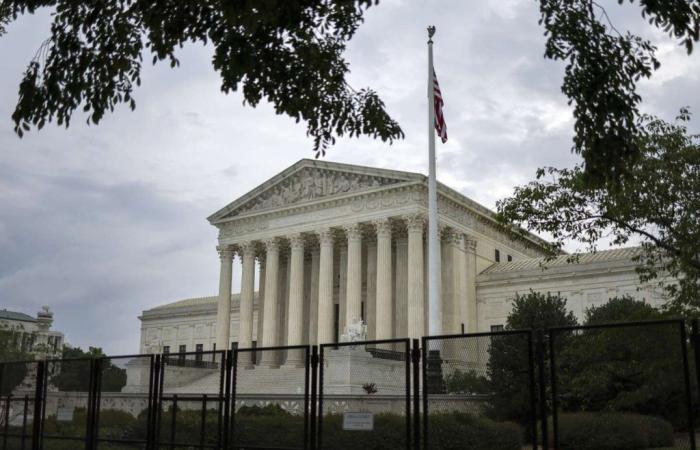The Supreme Court of the United States, with a conservative majority, reduced, on Friday, June 28, the freedom of action of federal agencies, in the crosshairs of ultra-liberal circles on a crusade against “bureaucracy”, by going back on forty years of case law.
This case law, known as the “Chevron doctrine,” gave the final say to government agencies in their areas of jurisdiction, such as environmental, social, or consumer protection matters. It required federal courts to follow the interpretation ” reasonable “ of these agencies in the event of ambiguity or silence in the law.
“Courts must exercise independent judgment in deciding whether an agency acted within its statutory authority and cannot defer to that agency’s interpretation of the law simply because it is ambiguous “written on behalf of the majority of six conservatives, against the three progressives, the president of the Court, John Roberts. “Chevron is canceled”he continues.
“Limit the powers of agencies”
Chevron case law “has become a pillar of modern government, supporting regulatory efforts of all kinds – to name a few, on clean air and water, food and drug safety, and honesty of financial markets “objects liberal Justice Elena Kagan in her dissent.
“Congress knows that it does not – indeed cannot – write perfectly comprehensive laws.”she emphasizes, criticizing the majority for having during this session “decided to limit agency powers, despite congressional indications to the contrary”.
She was referring in particular to a decision by the Court on Thursday, by the same majority of six conservatives against the three progressives, denying the American “policeman” of financial markets, the SEC, the power to sanction individuals or companies via its own administrative judges, rather than going through ordinary civil justice.
“An unjustified shock to the legal system”
Critics of the Chevron case argued that statutory interpretation is the responsibility of the judiciary, not federal agencies, which are part of the executive branch. “A reversal of the Chevron case law would be an unwarranted shock to the legal system”, had pleaded – during the debates in January – the legal advisor to the administration of Democratic President Joe Biden, Elizabeth Prelogar, highlighting the risks of instability that this would cause. In this hypothesis, she predicted a legal cacophony, with “different rules in different parts of the country”.
But most conservative judges appeared resistant to these arguments. One of them, Brett Kavanaugh, argued that this instability was inherent to democratic institutions. “The Chevron case law itself causes shocks to the system when a new administration arrives”, he retorted, in reference to the four-year presidential term, renewable once. These upheavals concern “both telecommunications law, financial markets law, competition law and environmental law”Mr. Kavanaugh listed.
Paradoxically, when adopted in 1984, the decision represented a success for the administration of Republican President Ronald Reagan, who accused progressive judges of burying businesses under exorbitant regulations.
Read also | Article reserved for our subscribers In the United States, the media question the continuation of the Biden candidacy
Add to your selections






